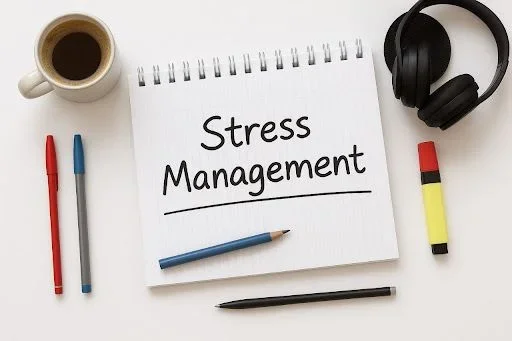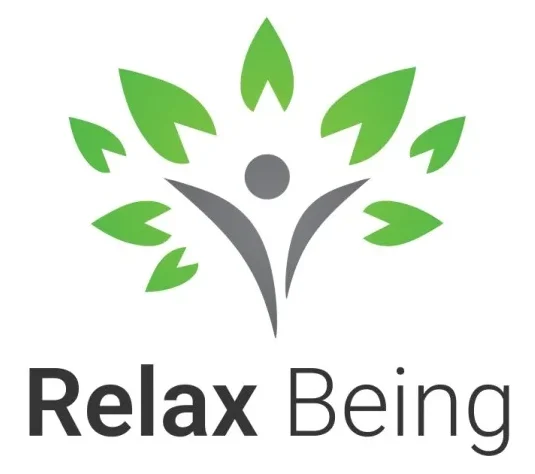
Stress Management
Introduction
In today’s society, stress management has become a prevalent topic because of fast-paced lifestyles, the constant increase in demands from work and family, and the common experience of sudden life changes. From a new job to an unexpected event like an extremely stressful speeding ticket, the body naturally experiences a reaction that can be both positive and negative.
At times, the feelings of pressure give a short term motivation boost to finish a task before a deadline, while in the long term, excessive stress becomes detrimental, affecting physical and emotional well-being. I have personally noticed how even mild levels of stress management can sharpen focus, but ignoring the importance of balance leads to harmful outcomes.What often goes unnoticed is the body’s response: higher blood pressure, faster heart rate, and muscle tension that put us at risk of hypertension, heart problems, or even a stroke.
Studies and my own work with professionals have shown that overworked people often report issues such as adrenal fatigue, digestive and reproductive systems dysfunction, and faster aging process. These are not just abstract health risks—they are real problems that I’ve seen among peers who neglected early signs.
The article introduction to this wide field of management highlights how recognizing the foundational concepts and implementing strategies are critical steps, truly paramount for maintaining good health.Even mild doses of stress management can be healthy and keep us active, but moderate balance is key to prevent diseases, anxiety, and other reported challenges
What is Stress?
When we talk about the definition of stress, it is not just about tension or worry—it is about the transaction between people and their environment. According to R.S. Lazarus, 1984, stress arises when an individual faces demands from the external world that seem beyond their ability to meet. In his book, Stress, Appraisal and Coping, he explained how cognitive appraisal plays a big role. A situation becomes stressful when it is perceived as threatening to one’s resources, well-being, or belief in being capable to cope.
I personally relate to this idea because I have often noticed that the same stressor makes one person feel negative feelings while another reacts differently. This shows how children, students, or adults may experience stress in highly stressful moments in ways that vary depending on their own beliefs and strengths.
Researchers like Charles D. Spielberger, 1981, also emphasized that stress is a complex concept with numerous definitions. He highlighted how a perceived threat can trigger psychological effects such as inadequate focus, difficulties in learning, or short-term memory loss.
On the physical side, the response can show up as slower time to heal wounds, lengthened impairment of the immune or digestive system, and other symptoms that people often suffer from. In my own study of stress management, I’ve seen how these kinds of symptoms are sometimes ignored, even though they clearly show how the individual is struggling to deal with challenges.
Developing an understanding of stress management helps not only in recognizing the psychological difficulties but also in finding healthier ways to cope and protect both body and mind.
Effects of Stress on Health
In recent years, stress management has become a major problem in people’s lives. In today’s world, almost everyone feels overburdened with the pressures and demands of daily lives for various reasons. This continuous feeling of pressure can easily affect the human body, and as experts in the field of health and psychology have found, it is one of the leading causes of poor well-being.
From employment struggles to finances, these are the three main causes that trigger major life events. Chronic problems and daily hassles act as chronic stressors that are difficult to deal with, and there is often no quick solution. I have personally seen how a major life change, like divorce or the death of a loved one, can be a common source of stress, and in every specific case, the results vary—some people develop physical symptoms, while others experience psychological, emotional, or behavioral symptoms.
Either physical or psychological, the effects can be debilitating and cause harm to the individual, often contributing to diseases, chronic conditions like heart disease, high blood pressure, diabetes, and obesity. Chronic stress management can also lead to psychological conditions such as anxiety, depression, personality disorders, or even suicidal behavior.
Nevertheless, prevention is the best strategy. If the illness itself becomes severe, the symptoms may lead to various chronic illnesses, exacerbating pre-existing conditions or bringing new diseases due to a weakened immune system. I’ve read how signs of chronic stress are even associated with accelerated aging because of telomeres, the protective caps at the end of chromosomes; their length can reveal biological age, and research has found a correlation with shorter length caps.
Finding ways of protecting yourself can have a dramatic effect on the aging process. These effects are not limited to adults; they also impact children. Studies have shown that children of mothers who experienced significant amounts of stress and anxiety during pregnancy face an increased risk of emotional problems, ADHD, or physical illnesses like asthma.
Modern medicine has proven links between stress management and health, but effective management techniques are available to alleviate health-related symptoms. Personally, I’ve seen benefits in developed strategies like recognizing signs early, keeping a diary, or seeking professional advice. Such practices are widely accepted, and using relaxation can be extremely beneficial for managing stress management
Importance of Stress Management
From my personal and professional experience, I have seen how stress management can quietly shape the mind and body, leading to both subtle and visible effects. When not well managed, everyday challenges at home or the workplace can turn into a serious issue, sometimes even a medical condition.
The World Health Organization has even compared major events like moving house, a change job, or bereavement as the single biggest contributing factor to illness. It is estimated that nearly 75% of visits to doctors are due to stress management-related concerns. I have noticed how feelings of irritability, isolation, or even depression can manifest when people struggle to concentrate, face sleeping problems, or suffer from a lack confidence. These symptoms are real, and if not taken seriously, they may disrupt our daily lives and even affect the way we interact with family, friends, and interpersonal relationships.
On the other hand, when stress is controlled with guided techniques, the benefits are often surprising. Modern research in neurobiology shows that our bodies and brains are in an ongoing dialogue of systems working to maintain homeostasis, a stable equilibrium that helps us survive.
By using positive strategies like problem-solving, rational thoughts, and awareness, we can improve our perspective, stay relaxed, and keep nervous sensations in check. This reduction of blood pressure, signs aging decrease, and a boosted immune system lowers the risk of heart disease, while also enhancing confidence, patience, and enjoying a more healthy and fulfilling life.
In fact, I’ve felt more active, better trained in handling challenges, and able to shift from short bursts of hyper-alertstages into calmer days and weeks by following small steps and strategies. This shows the fundamental importance of developing a strategy for stress management that acknowledges its critical role, no matter the age, gender, or background of those who suffer.
Coping with Stress in Different Settings
In everyday life, feeling stressed out is a common experience, especially when juggling everyday work, high workloads, and frequent disturbances. I have often seen how colleagues in strenuous working environments face work stress management due to a lack of participation in decision making or worries about job security. According to the International Labour Organization (ILO), stress is now a Worldwide Epidemic, and the Global Worksite Health Promotion (2007) report highlighted that employees’ feelings about their workplace deeply affect whether a company provides a mentally healthy work environment.
Personally, I’ve found that small activities like a simple Time-Out of five or even 15 minutes during working hours to relax and recover can prevent both physical exhaustion and mental exhaustion. Such a method helps me cope with work stress while improving focus and efficiency.
Different methods to cope with stress can be applied in various settings, whether at home with friends and family, or at work with peer support and colleagues. For instance, physical exercise is a proven way to release stress hormones like adrenaline and cortisol from the body, leading to reduced tension and an increase in mood and energy. Combining exercise with a well-balanced diet and small, frequent meals throughout the day is also important.
The American Psychological Association (APA) reported in its 2006 Stress and Eating study that 38% adults admitted to having overeaten unhealthy food in the past month due to stress. This shows that diet is not only about health but also about coping in a proper way. Simple practices like relaxation techniques, deep-breathing, meditation, and mindfulness techniques can help when feeling severely stressed, no matter the potential causes.
I often imagine myself stepping away for a short walk or joining a group activity, and those moments remind me that stress management is not about elimination but about finding balance in how we cope
Stress Management at Work
In the workplace, stress management is one of the most common challenges faced by employees, often triggered by multiple sources that can be easily identified. From the biggest causes like long hours, lack of control, or a difficult working environment, to a variety of hidden factors such as increased workload or exacerbated pressure due to the increasing demands of the modern world, the strain is real.
The continual need to learn new skills, combined with the constant pressure to perform at high standards, often leaves employees struggling. From my own professional experience, I have seen colleagues drained by unmanaged stress simply because the right strategies and techniques were not in place.
Managing these pressures is essential, and small shifts can help not only manage but also reduce stress management before it becomes broken into bigger issues.Simple physicalimprovements at work, like adding more naturallight, reducingnoisepollution, or creatingspecialrestareas for staff to take shortbreaks, can make a surprising difference.
On an individual level, dedicating time to calming activities, settingclear and realisticgoals, and recognizing the impact these small steps have can reshape the overall effect of stress. Many companies now offeradvice, support, and even access to counsellingservices, where employees can talk through challenges and develop stronger coping mechanisms. Group efforts like courses, team–buildingexercises, workshops, and assertiveness or communication training also provide valuable tools.
By addressing both psychological and practical distractioncauses, organizations can focus on promoting and protectingmentalwellbeing, ensuring stress does not remain untreated and progress into severerisk factors such as healthdisorders, depression, anxiety, or physicalproblems like cardiovasculardisease and musculoskeletal strain.

